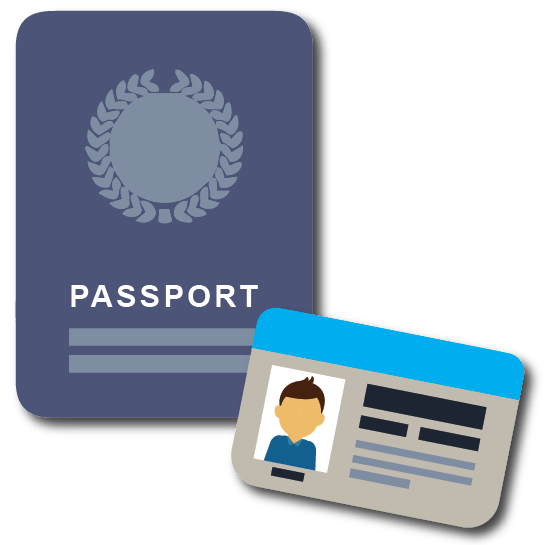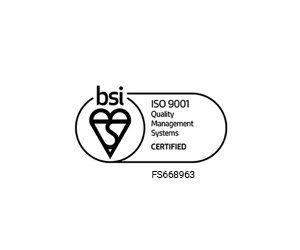The benefits and importance of Document Verification
October 31, 2019
This is a case study from the King’s College Hospital NHS Foundation Trust.
King’s College Hospital NHS Foundation Trust is one of London's largest and busiest teaching hospitals. The Trust employs staff from 120 countries with a range of diverse backgrounds. On average there are 150 new starters each month, all of whom need to be consistently checked in line with the NHS Employers employment check standards.
Before using scanning equipment and software, the Trust relied on recruitment administrators to visually inspect identity documents such as passports and driving licenses. This process depended on individual experience to detect anything suspicious. The trust deemed this to be very risky, particularly given the sophistication by which fraudulent documents are now made.
As the Home Office continues to tighten up on immigration and organisations face increasingly large fines for employing an illegal worker, in 2015 the Trust decided to tighten up its ID-checking procedures and retrospectively check 6,000 staff that were recruited prior to the implementation of the ID verification technology in 2009.
Before carrying out the checks, the trust sought legal advice and developed a comprehensive communications strategy including a factsheet with FAQs. It was crucial to get this right from the outset to ensure staff fully understood the rationale for the checks, the benefits for the organisation, the process that would follow and when their checks would take place.
The main scanner uses a variety of light sources to carry out checks to verify the documents produced are genuine and highlight any potential discrepancies. The Trust also used a portable system at remote sites. The new scanner meant that administrators no longer had the burden of checking documents. As part of the package staff were trained to deal with situations where false documents are suspected and subsequent local investigations need to take place. If a problem is detected the system automatically stores a copy of the document, allowing the originals to be handed back to the individual. The administrator can then get in touch with the provider and request a full report on the document which will outline any discrepancies found in the document or refer the matter to the Counter Fraud Team. There are a number of systems available on the market, but generally each cost between £5,000 and £10,000 for a three year contract.
After 12 months 92% of staff where checked successfully and a significant decline was seen in the number of individuals presenting false documents. During the 12 month period, 500 staff voluntarily resigned before having their documents checked. The trust did however identify two members of staff working under false documents, one of whom had been working for the Trust since 1997. Financial recovery of over £105,000 was achieved as a result of the project which led to a return on investment of over 400%. The use of the scanner and software has transformed the Trusts ID checking element of the recruitment process and in 2016 won the Government Counter Fraud Award.
The staff at Security and Fraud Experts knows how important Document Verification is, which is why we run interactive training sessions to assists HR/recruitment teams and recruiting managers in identifying and reporting fraudulent identity documents, protecting your organisation from the risk of civil penalties or criminal charges for employing illegal workers. For more information on this training course can be viewed under the Services section of our website.
Share this news story...

Section 199 of the Economic Crime and Corporate Transparency Act 2023 (ECCTA) introduced a new corporate offence that significantly raises the bar on fraud risk management. Large organisations can now be criminally liable if an employee, agent, or other associated person commits fraud for the organisation’s benefit—and the organisation did not have reasonable fraud prevention procedures in place. This is a strict liability offence. Prosecutors do not need to prove senior management knowledge or intent. If fraud occurs and the organisation cannot demonstrate an adequate prevention framework, liability follows. The only defence: reasonable procedures The sole statutory defence is that the organisation had reasonable procedures in place to prevent fraud, or that it was reasonable not to have such procedures. In practice, regulators have made clear that “reasonable” will be interpreted robustly. Organisations should be acting now to: Conduct a documented fraud risk assessment covering business models, revenue streams, incentive structures, third-party exposure, and jurisdictional risk. Design proportionate prevention controls aligned to identified risks, including financial controls, approval thresholds, segregation of duties, and oversight of agents and intermediaries. Set the tone from the top , with clear board ownership, senior accountability, and demonstrable commitment to fraud prevention. Implement targeted training and communications so employees and associated persons understand fraud risks, red flags, and reporting routes. Maintain monitoring, reporting, and review mechanisms , including whistleblowing channels, audits, and periodic reassessment as the business evolves. Evidence everything . Policies without implementation, or controls without records, will not support a defence.

Thank you to everyone who attended one of our fraud prevention webinars in 2025. For those who missed them, you can now watch all the recordings at your convenience on the SAFE YouTube channel. Whether you want to find out more about the drivers of fraud, or explore strategies for preventing emerging threats such as dual employment and imposter fraud, we've got a webinar for you. All the links you need are below, and we've included links to additional resources available elsewhere on the SAFE website.

SAFE – Security and Fraud Experts and Dorset HealthCare University NHS Foundation Trust are proud to be part of Project WISE (Workforce Integrity and System Efficiency), a proactive initiative using data and advanced analytics to strengthen fraud detection across the NHS. The NHSCFA estimates that £1.346 billion of NHS funding is vulnerable to loss through fraud, bribery and corruption in England. With fraud posing a significant risk to NHS resources each year, we’ve joined forces with the NHS Counter Fraud Authority and four other NHS organisations across the South East and South West to pilot this first-of-its-kind initiative. The pilot is helping to identify emerging fraud risks and patterns, turning complex data into actionable intelligence that supports local and regional counter fraud teams.



